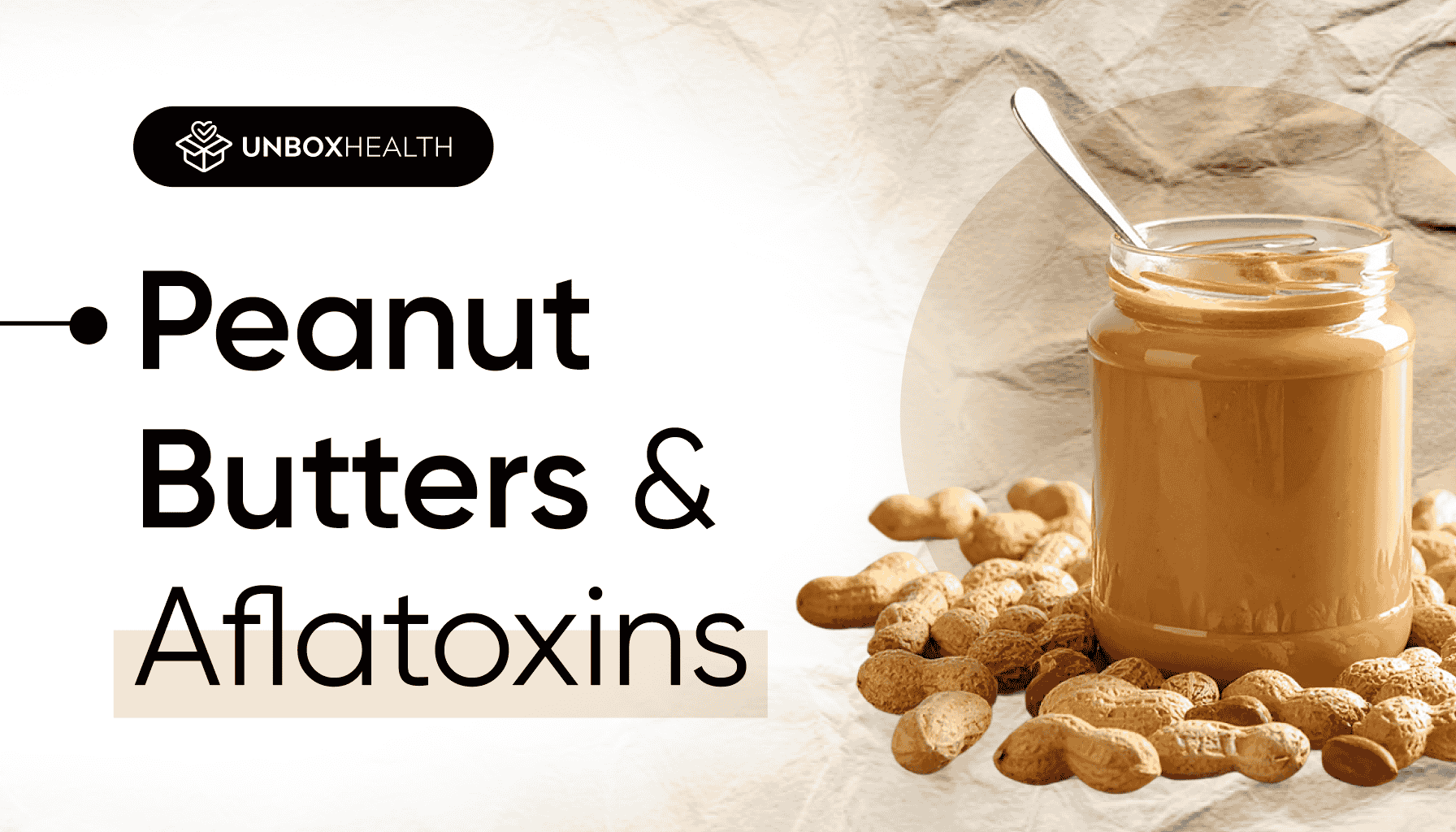Peanut butter is often seen as a guilt-free indulgence sweet, comforting, and protein-rich. Whether spread over toast, added to smoothies, or eaten straight off the spoon, it’s earned its place in Indian homes as a healthy snack or pre-workout fuel. But is the jar in your pantry as wholesome as you think?
At Unbox Health, we tested India’s top peanut butter brands to uncover what’s really inside; beyond the label.
Peanut Butter: A Simple Food, Complicated by Processing
In its purest form, peanut butter is made by grinding roasted peanuts until smooth. You don’t need sugar, hydrogenated oils, preservatives, or added flavors. Yet, many commercial peanut butters are far from this minimalism.
Manufacturers often add:
- Refined sugars to improve taste
- Hydrogenated oils, including partially hydrogenated oils that contain trans fats
- Salt and flavoring agents
- Preservatives and emulsifiers
These additions may enhance shelf life and spread ability, but they also introduce harmful compounds especially trans fats and aflatoxins that consumers are largely unaware of.
Trans Fats: Hiding in Plain Sight
India banned partially hydrogenated oils by 2022, but products with <0.5g trans fat per serving can still legally label themselves as “0 trans fat” due to regulatory loopholes (FSSAI Gazette Notification, 2021). Since few consumers strictly stick to the serving size, cumulative trans fat intake often exceeds safe limits.
Many Studies have shown Trans fats to be associated with:
- Increased LDL (bad) cholesterol
- Lowered HDL (good) cholesterol
- Higher risk of heart disease, stroke, and inflammation
(Harvard School of Public Health, 2020)
Aflatoxins and Heavy Metals: The Hidden Toxins
Peanuts are prone to fungal contamination, especially by Aspergillus flavus, which produces aflatoxins, highly toxic, carcinogenic compounds. Aflatoxins are known to:
- Damage the liver
- Increase cancer risk
- Suppress immunity
(IARC Monograph Vol. 100F, WHO)
Additionally, some samples contained traces of lead, cadmium, and mercury with long-term health effects, especially in children and pregnant women.
Unbox Health Lab-Tested 10 Popular Peanut Butter Brands
We rated each product based on 3 objective criteria:
- Label Accuracy Score (LAS): Do the actual nutrients match the claims? We measured calories, fat, protein, sugar, and fiber in the lab and compared them to the label.
- Non-Toxicity Score (NTS): We tested for heavy metals and aflatoxins against FSSAI’s permissible limits. The lower the contamination, the higher the NTS.
- Nutritional Profile Score (NPS): We analyzed protein, sugar, and fat content based on Recommended Dietary Allowances (RDA) and WHO nutritional quality standards.
What We Found
50% of peanut butters had unsafe aflatoxin levels, exceeding FSSAI’s limits.
30% failed label accuracy checks meaning what you read on the pack wasn’t what was inside.
Toxic Products Still Dominate Online Platforms
Surprisingly, some of the most highly toxic peanut butters received glowing customer reviews on Amazon:
- 5 peanut butters with low NTS scored over 4.1 stars on average, with 1 lakh+ reviews.
- The #1 best-selling peanut butter (72,900+ reviews) received a C rating on Unbox Health due to high aflatoxin levels and a misleading label.
These brands are thriving, not because they’re safe, but because consumers don’t have access to lab-verified information. This is where Unbox Health comes into picture.
Check out unbiased lab-tested ratings of “Peanut Butter” on Unbox Health along with their detailed lab reports.
About Unbox Health
Unbox Health: India’s First Ratings Platform for Packaged Foods and Health Supplement Tired of biased reviews and never-ending claims? At Unbox Health, every product is tested at multiple premium FSSAI-approved NABL-accredited international labs – 100% independently, transparently, and without any brand involvement.
- 100% Transparency: All lab reports are publicly published.
- Zero Hidden Agendas: Products are market-bought with no brand involvement.
- Accurate Testing: Samples tested at up to 3 premium international labs
- Actionable Ratings: Based on Label Accuracy, Toxicity & Nutritional Profile.
Head over to Unbox Health and let the data guide your consumption choices.
References:
- Mozaffarian D, Katan MB, Ascherio A, Stampfer MJ, Willett WC. Trans Fatty Acids and Cardiovascular Disease. N Engl J Med. 2006;354(15):1601-1613.
- World Health Organization, International Agency for Research on Cancer (IARC). Aflatoxins. IARC Monographs on the Evaluation of Carcinogenic Risks to Humans Volume 100F. Lyon, France: IARC; 2012.
- Food Safety and Standards Authority of India (FSSAI). Gazette Notification on Elimination of Trans Fat. January 2021.
- Wild CP, Miller JD, Groopman JD. Mycotoxin Control in Low- and Middle-Income Countries. IARC Working Group Report No. 9. Lyon, France: IARC; 2015.
- Codex Alimentarius Commission. General Standard for Contaminants and Toxins in Food and Feed (CODEX STAN 193-1995). Rome: FAO/WHO; Revised 2021. Harvard T.H. Chan School of Public Health. Trans Fats: The Silent Killer. The Nutrition Source. Published 2020.
- Harvard T.H. Chan School of Public Health. Trans Fats: The Silent Killer. The Nutrition Source. Published 2020
- Bansal V, Kaur H, Goel S, Bansal P. Label Accuracy of Nutritional Information on Packaged Foods: A Review. J Nutr Health Food Eng. 2020;10(2):46-49.
